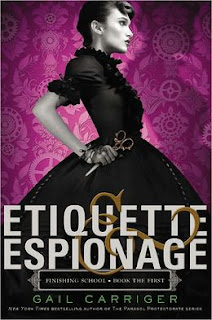Tara Conklin
Tara Conklin is a writer and lawyer currently living with her family in Seattle, WA. Most recently, she worked as a litigator in the New York and London offices of a corporate law firm but now devotes herself full-time to writing fiction.
Her recently released debut novel is The House Girl.
From Conklin's interview with NPR's Rachel Martin:
On the 19th-century character Josephine Bell and the 21st-century character Lina SparrowLearn more about the book and author at Tara Conklin's website.
Conklin: Josephine is a house slave on a failing tobacco farm in Virginia and she's an artist. She's running from the circumstances of her enslavement, basically, from her master, whom she calls Mister, and her mistress, whom she calls Mrs. Lu ... [Lina's] job is to find a lead plaintiff to lead this slavery reparations lawsuit that her law firm has decided to take on as sort of a special project for a big client of theirs. And so her role is to find a face for the lawsuit — a descendant of an American slave who can speak to the nature of the harm, in lawyer-speak, who can sort of represent this massive, really, you know, unimaginable harm that was slavery in America.
On how her novel addresses revisionist history
Conklin: As I was doing the research, you know, I read a lot of slave narratives, and the thing that just struck me is that, you know, 250 years of slavery and there are so few accounts of what their lives were actually like. And I started thinking a lot about who writes history, and what are the voices that we don't hear, and so that was one of the influences that went into me setting up that situation where [Josephine's mistress] Lu Anne Bell takes credit for Josephine's art and then, over the years, over the decades, Lu Anne achieves a fair amount of fame when, in fact, Josephine was...[read on]
The Page 69 Test: The House Girl.
Writers Read: Tara Conklin.
My Book, The Movie: The House Girl.
--Marshal Zeringue




























